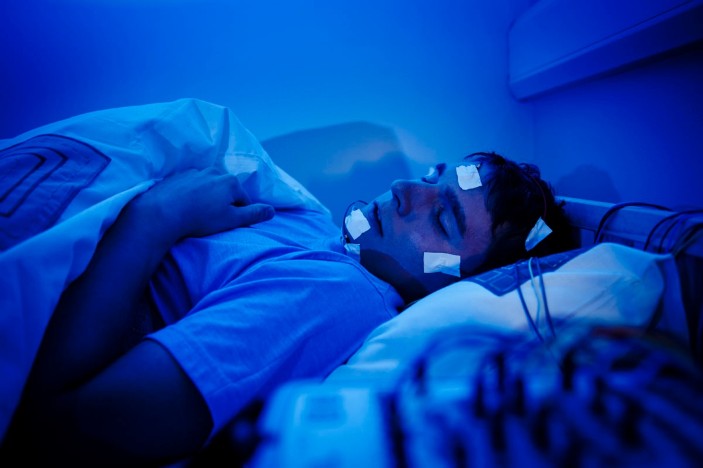The Importance of Counseling in Dealing With Sleep Disorders and Supporting Mental Health
Effective management of rest disorders is vital for preserving total mental wellness, and therapy plays an essential role in this process. Via therapy, people can check out the origin causes of their rest concerns, establish dealing techniques, and discover relaxation methods to promote far better rest hygiene.

Recognizing Sleep Disorders
Comprehending rest conditions is crucial in order to resolve the underlying reasons for interrupted rest patterns and enhance total health - sleep deprivation help. Rest disorders encompass a range of conditions that influence the high quality, timing, and duration of sleep, bring about difficulties in falling asleep, staying asleep, or experiencing restful sleep
One common type of rest condition is sleeplessness, identified by difficulty keeping or starting rest. This can arise from numerous factors such as anxiety, anxiety, or inadequate sleep habits. An additional common rest problem is sleep apnea, where breathing repeatedly stops and starts throughout rest, leading to inadequate oxygenation and fragmented sleep. Restless legs disorder, narcolepsy, and parasomnias like sleepwalking are additionally among the lots of sleep problems that can substantially impact an individual's rest top quality and day-to-day performance.
Role of Therapy in Treatment
Resolving sleep disorders via therapy is an important element of comprehensive treatment strategies aimed at enhancing both rest top quality and mental wellness. Counseling plays a crucial duty in the therapy of sleep problems by aiding people recognize and attend to underlying psychological elements that may be adding to their sleep disruptions. Through counseling, people can check out and fix problems such as stress and anxiety, anxiety, anxiety, injury, or other mental wellness problems that can substantially influence sleep patterns.
Therapy also offers people with strategies and methods to enhance sleep hygiene, handle tension, and regulate emotions, all of which are crucial for advertising healthy and balanced rest habits. With the guidance and assistance of an experienced therapist, individuals can make meaningful modifications that lead to better sleep and general psychological wellness.

Strategies for Better Sleep
Reliable management of sleep disorders requires the application of useful approaches tailored to individual needs and circumstances. If rest difficulties continue, maintaining a rest diary to track practices and patterns can give beneficial insight for more treatment. By including these techniques into everyday routines, individuals can improve the quality of their rest and total psychological health.
Impact of Sleep on Mental Wellness

Study has revealed that not enough or interrupted rest can adversely affect natural chemical degrees, specifically those associated to state of mind policy, causing raised impatience, reduced strength to stress, and a higher possibility of creating psychological health disorders. Furthermore, chronic rest deprival can harm cognitive function, memory debt consolidation, and decision-making procedures, better exacerbating mental health challenges.
For that reason, resolving rest disruptions via therapy and applying approaches for better sleep health is essential in promoting psychological health. By improving sleep top quality, people can positively affect their psychological health and wellness, enhancing their ability to cope with everyday stressors and preserve emotional balance.
Benefits of Therapy for Health
Counseling for health functions as a useful resource for individuals looking for to boost their psychological and psychological well-being via specialist guidance and assistance. Among the main benefits of counseling is the possibility it attends to individuals to explore their ideas, sensations, and habits in a risk-free and confidential setting. By collaborating with a skilled therapist, individuals can obtain a far better understanding of themselves, determine locations for personal growth, and establish dealing approaches for managing stress and obstacles.
Furthermore, counseling can aid people improve their interaction abilities, build much healthier relationships, and improve their self-confidence and positive self-image. Via regular sessions, individuals can discover to identify unfavorable insomnia therapy patterns of thinking and habits, challenge irrational beliefs, and develop more flexible and favorable means of believing and behaving.
Furthermore, therapy can play an essential duty in promoting general health by dealing with underlying problems that might be adding to psychological health worries such as anxiety, anxiety, or sleep conditions. By resolving these problems proactively, people can experience improved psychological wellness, much better rest quality, and a higher sense of total health.
Final Thought
In final thought, counseling plays a vital duty in dealing with sleep disorders and advertising psychological wellness. By understanding sleep conditions, utilizing therapy in treatment, implementing approaches for much better sleep, and identifying the effect of sleep on psychological health, people can experience better overall wellness. Counseling uses countless benefits for psychological health and wellness and well-being, making it a necessary element in the monitoring of sleep disorders and the promotion of psychological wellness.
Another common rest problem is rest apnea, where breathing repetitively quits and begins throughout rest, leading to inadequate oxygenation and fragmented rest.Attending to sleep disorders via counseling is an essential element of extensive treatment strategies intended at enhancing both sleep quality and psychological wellness.The interconnection in between effective management of rest problems and psychological health highlights the considerable effect that sleep high quality can have on an individual's mental wellness. When sleep is jeopardized, either due to rest problems or poor sleep practices, it can lead to an array of psychological health problems such as anxiousness, anxiety, mood disruptions, and problem in dealing with anxiety.
By comprehending rest conditions, utilizing therapy in therapy, executing strategies for far better sleep, and identifying the effect of rest on psychological health, individuals can experience improved general health.
 Angus T. Jones Then & Now!
Angus T. Jones Then & Now! Dolly Parton Then & Now!
Dolly Parton Then & Now! Jaclyn Smith Then & Now!
Jaclyn Smith Then & Now! Katey Sagal Then & Now!
Katey Sagal Then & Now! Megyn Kelly Then & Now!
Megyn Kelly Then & Now!